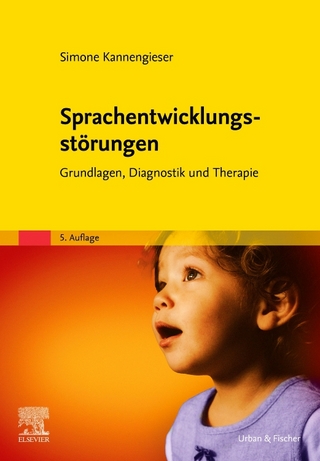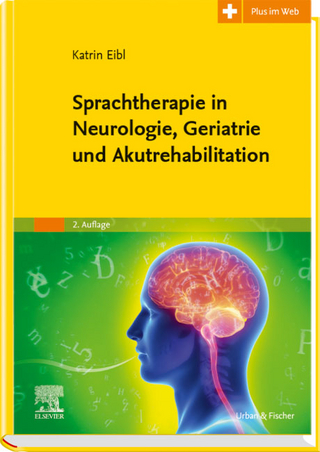
Here's How to Do Therapy
Plural Publishing Inc (Verlag)
978-1-63550-320-3 (ISBN)
The new and significantly updated third edition of Here's How to Do Therapy: Hands-On Core Skills in Speech-Language Pathology is an essential resource on effective evidence-based interventions for both practicing clinicians and students in academic speech-language pathology programs. Unique in design and content, the book and online supplementary materials provide a logical and manageable approach to enhance clinical skills through guided practice for different types of communication disorders.
Part I presents the basic considerations and foundations of the therapeutic process. Twenty-eight fundamental therapeutic skills are presented in a "workshop format" using organizers, definitions/demonstrations, think-out-loud questions, prompts for practice, post-organizers, and more. Readers are guided through a process for learning and demonstrating each of the 28 specific skills through use of three tools: Therapeutic-Specific Workshop Forms, Video Vignettes, and two Mini-Therapy Sessions.
Part II of the text contains seven Guided Practice chapters, with selected concepts and scripted examples of therapy sessions for receptive and expressive language, social communication for children with Autism Spectrum Disorder (ASD), articulation and phonology, voice, swallowing, resonance, and adult cognitive communication.
New to the Third Edition
Two new Guided Practice chapters: one on adult cognitive disorders and one on dysphagia/swallowing disorders
Additional information on cultural and linguistic diversity, telepractice, AAC, phonological processes, and social communication for children with ASD
Expanded focus on evidence-based practice
A PluralPlus companion website with supplementary materials, including video demonstrations, printable forms, and PowerPoint lecture slides for instructors
Debra Dwight is an Alabama native and received a bachelor's degree in Speech Therapy and a master's degree in Early Childhood Education from the University of South Alabama, Mobile. Her master's and doctoral degrees in Speech-Language Pathology were received from the University of Alabama, Tuscaloosa, where Debra developed an interest in clinical teaching. Although she worked as a college/university faculty member in different positions over the past ten years, Debra describes herself as a clinical practitioner due to her constant desire to impact the quality of service delivery in the speech-language profession. She has worked as a speech-language pathologist in public schools, as a university clinical supervisor, as director of a pre-K special needs program, and as a college instructor, and assistant professor. She currently serves as Director of Speech-Language Pathology Programs at University of West Georgia, Carrollton.
Preface
Introduction. Here's How to Use This Text
Teaching and Learning Pedagogy
Cooperative Learning
Interactive Nature of Learning
Critical Incidents in Learning
Overview of Focused Activities
Clinical Supervisor or Instructor-focused Activity Cluster
Textbook or Companion Website-focused Activity Cluster
Interactive Learning Group-focused Activity Cluster
Overview of the 28 Therapeutic-Specific Skills
PART I - INTRODUCTION
Chapter 1. Basic Considerations for the Therapeutic Process
Artistry in Speech-Language Pathology
Speech-Language Therapy and Task Analysis
Skills for Speech-Language Therapy
Developing Therapeutic Mindset
Role of the Speech-Language Pathologist in the Therapeutic Process
Interpersonal Demeanor in Therapy
Nonverbal Behaviors and Emotional Affect in the Therapeutic Process
Professionalism
Excellence as Hallmark of Therapy
Chapter 2. Foundations for the Therapeutic Process: Overview
The Therapeutic Process Defined
Basic Confidence and Trust in the Therapeutic Process
The Therapeutic Relationship
Diversity and Multiculturalism in the Therapeutic Process
Chapter 3. Learning Theories Related to Speech-Language Intervention
Learning Defined
The Behavioral Orientation to Learning
The Cognitive Orientation to Learning
Humanistic/Experiential Orientation to Learning
The Social Orientation to Learning
Learning Styles: Client and Clinical Applications
Global/Synergetic and Analytical Processing Styles
Visual, Auditory, and Tactile/Kinesthetic Preferred Modalities
Cultural Diversity and Learning Styles
Basic Concepts from Learning Theory Applied to Speech-Language Pathology
Telepractice in Speech-Language Pathology
Chapter 4. Developmental Domains and Special Classifications Related to the Therapeutic Process: An Overview
Typical Developmental Expectations (Overview)
Disability Categories and their Impact on Speech-Language Therapy Progress
Augmentative and Alternative Communication
Chapter 5 Hands-On Core Skills: The Speech-Language Pathologist as Facilitator of Positive Communication Change
Therapeutic-Specific Skills
Overview of Workshop Tutorials: How to Use This Chapter
Workshop Tutorials
Motivation
Communicating Expectations
Enthusiasm, Animation, and Volume in the Therapeutic Process
Seating Arrangements, Proximity, and Touch in the Therapeutic Process
Preparation, Pacing, and Fluency for Therapeutic Momentum
Antecedents: Alerting Stimuli, Cueing, Modeling, and Prompting
Direct Teaching: Learning Modalities, Describing/Demonstrating, Questioning,
and Wait-Time in the Therapeutic Process
Stimulus Presentations: Shaping (Successive Approximations)
Positive Reinforcers: Verbal Praise, Tokens, and Primary Reinforcers
Corrective Feedback in the Therapeutic Process
Data Collection in the Therapeutic Process
Probing in the Therapeutic Process
Behavioral Management in the Therapeutic Process
Troubleshooting in the Therapeutic Process
Chapter 6. Basic Structure Within the Therapeutic Process
Individual Versus Group Therapy
Interactive Group Therapy
Components of the Therapy Session
Chapter 7. Peripheral Speech-Language Therapy Management Issues
Transition from Diagnostic Assessment into Therapy
Treatment Plans, Schedules, Progress Notes, Dismissals
Health and Safety Issues
Creating the Therapeutic Environment
Client Files and Documentation
Materials Management
PART II - INTRODUCTION
Chapter 8. Guided Practice in Language-Based Therapy and Social Communication Therapy
Selected General Concepts for Language-Based Therapy
Selected General Concepts for Social Communication Therapy
Chapter 9. Guided Practice in Articulation Therapy and Concepts Regarding Phonological Processes Therapy
Selected General Concepts for Articulation Therapy
Selected General Concepts for Phonological Processes Therapy
Chapter 10. Guided Practice for Voice Therapy
Chapter 11. Guided Practice for Resonance Therapy
Chapter 12. Guided Practice for Fluency Therapy
Chapter 13. Guided Practice in Adult Language Therapy
Chapter 14. Guided Practice in Swallowing Therapy
Appendices
Glossary
Index
| Erscheinungsdatum | 10.01.2022 |
|---|---|
| Zusatzinfo | 30 figures and 18 tables |
| Verlagsort | San Diego |
| Sprache | englisch |
| Maße | 216 x 279 mm |
| Themenwelt | Medizin / Pharmazie ► Gesundheitsfachberufe ► Logopädie |
| ISBN-10 | 1-63550-320-5 / 1635503205 |
| ISBN-13 | 978-1-63550-320-3 / 9781635503203 |
| Zustand | Neuware |
| Haben Sie eine Frage zum Produkt? |
aus dem Bereich


